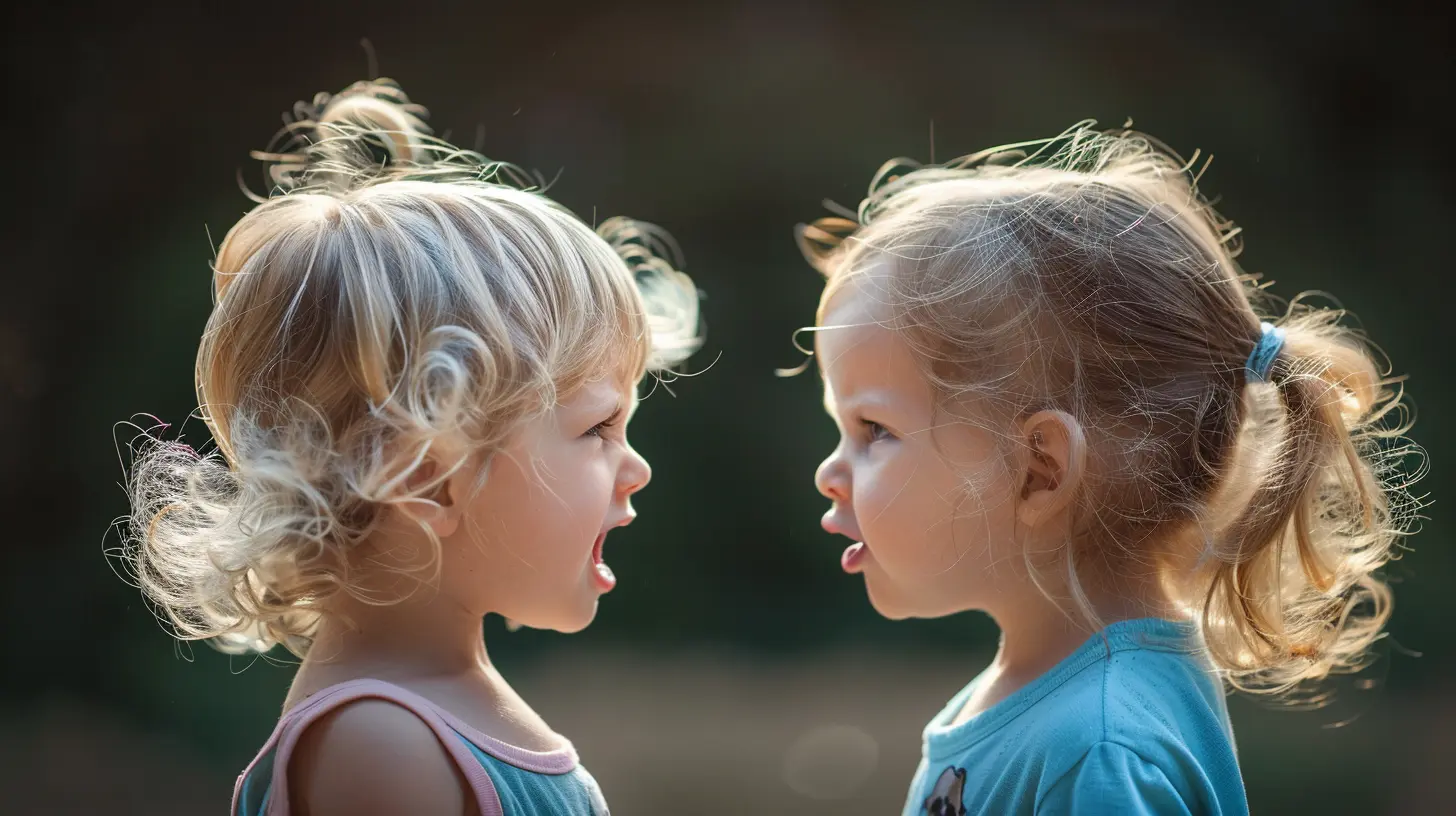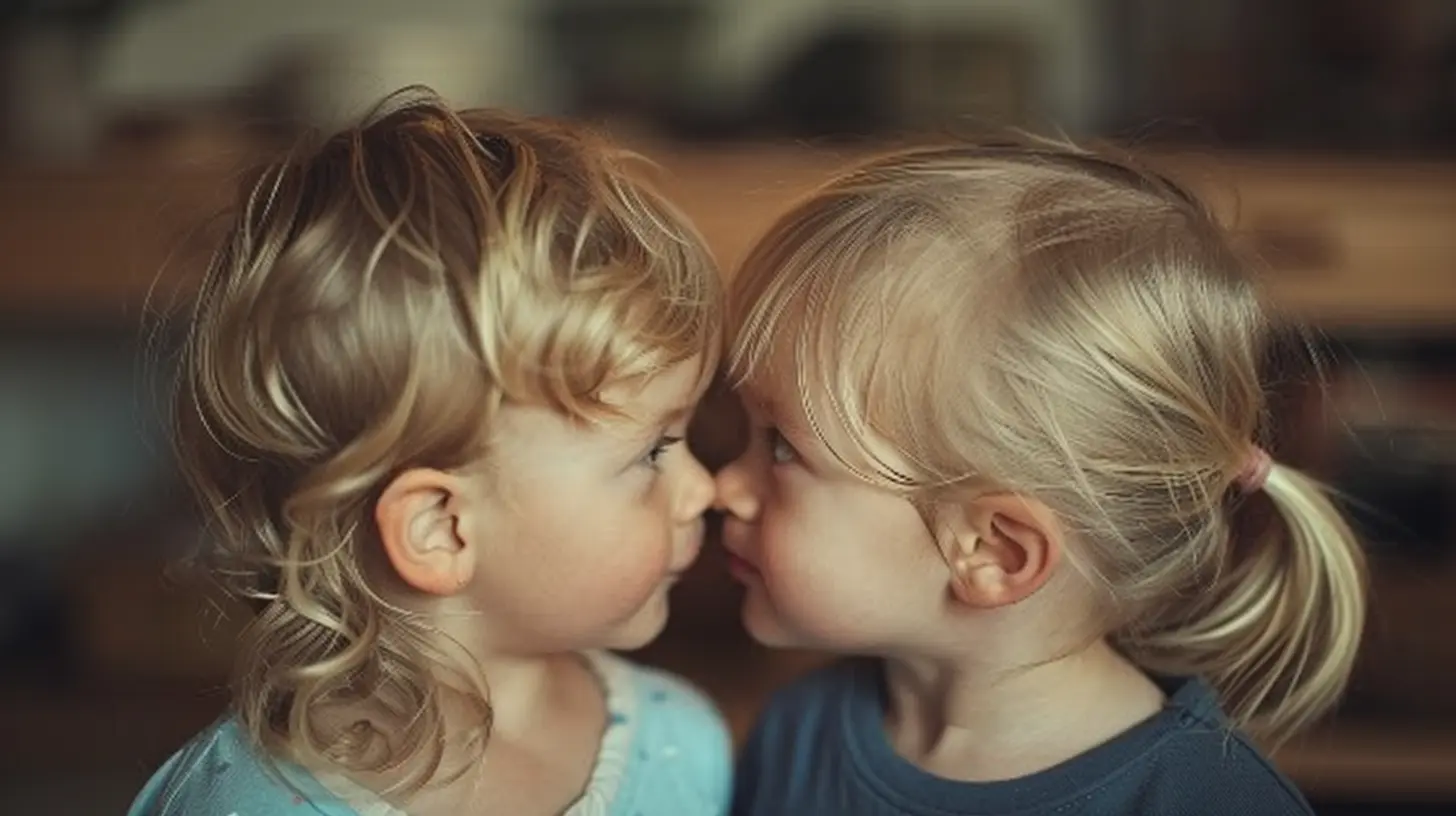How to Help Siblings Develop Mutual Respect
7 August 2025
As parents, we all dream of raising kids who get along, support each other, and maybe—just maybe—like each other, too. But let’s be real. Whether your kids are clashing over toys, teasing each other non-stop, or straight-up refusing to share their favorite snacks, sibling rivalry can feel like a never-ending theme in your household.
The good news? You can absolutely help your children build a relationship rooted in mutual respect. It won’t happen overnight, and it will take effort, but it’s possible—and totally worth it. Let's dive into how to help siblings develop mutual respect so your home can (one day) be that peaceful place you’ve been dreaming of.
Why Mutual Respect Among Siblings Matters
Before we jump into the how, it’s important to understand the why. Mutual respect between siblings does more than just keep the household noise levels down. It sets the foundation for:- Lifelong friendships
- Strong communication skills
- Conflict resolution abilities
- Empathy and understanding
Think of it like constructing a house. Mutual respect is the solid foundation. Without it, everything else—like cooperation, support, or even just getting through dinner without an argument—gets shaky.
1. Set the Example: Model Respect at Home
Want respectful kids? You’ve gotta show them what that looks like. Kids learn more from what we do than what we say. So, how do you model respect?- Talk to your partner with kindness, even during disagreements.
- Treat your kids with respect—listen actively and speak kindly.
- Say “please,” “thank you,” and “I’m sorry” regularly.
Think of your home as the first classroom. If children see respect in action, they’re more likely to adopt it naturally. Monkey see, monkey do, right?
Pro Tip:
Even how you handle irritation matters. Lost your cool? Own it. “I was frustrated and I yelled. I should’ve handled that differently, and I’m sorry.” Huge respect points right there.
2. Understand Each Child’s Personality
No two kids are the same—even if they share the same DNA. One might be sensitive and introverted, while the other is boisterous and outgoing. These differences can be a source of tension, but they can also be a chance to teach respect for diversity within your own family.Start by observing each child’s temperament and emotional needs. Then, talk to them individually. Let them feel seen and understood.
If one kid needs more quiet time and the other needs more physical activity, help them figure out ways to accommodate each other without stepping on toes. It's all about understanding and respecting each other's boundaries.
3. Teach the Golden Rule (And Go Beyond It)
“Treat others the way you want to be treated” is great—but let’s level it up a bit.Teach your kids to think about how the other person feels, not just how they feel. Encourage phrases like:
- “How would you feel if...?”
- “What do you think your brother felt when that happened?”
- “Can you think of a different way to say that kindly?”
Building emotional intelligence helps them to respond more thoughtfully—and a big part of mutual respect is thoughtful interaction.
Quick Activity:
Use role-playing games to act out common arguments, but switch up roles. Let them walk in each other’s shoes. Literally.4. Nip Comparison in the Bud
“Why can’t you be more like your sister?” Sound familiar? It might seem harmless, but comparing siblings can breed jealousy, resentment, and rivalry.Every child wants to feel valued for who they are. When one kid feels like they’re always falling short, respect for the other goes out the window. Replace comparisons with compliments for effort and individuality instead.
Instead of:
“You got an A like your brother!”
Try:
“You worked really hard and it paid off. I’m proud of your effort.”
Same encouragement, more respect, less competition.
5. Encourage Teamwork, Not Competition
Family life often becomes a mini Olympics—who finished brushing teeth first, who got more ice cream, who has the better toy. Spoiler alert: That only fuels rivalry.Instead, give them opportunities to work together:
- Set up cooperative games
- Give them shared chores (like setting the table together)
- Have a common goal (like earning a family movie night)
Make them feel like they’re on the same team rather than on opposite sides. Point out every little moment they help each other or show respect. Positive reinforcement goes a long way.
6. Teach Conflict Resolution Skills
Fights are gonna happen. That’s part of growing up. But teaching your kids how to fight fairly is crucial.Introduce a basic conflict resolution formula:
1. Calm down first—no yelling or hitting.
2. Take turns expressing feelings using “I” statements.
3. Brainstorm solutions together.
4. Agree on a plan.
It might feel clunky at first, but with practice, it becomes second nature. Just like learning to ride a bike—wobbly at the start, smooth later on.
7. Create Space for One-on-One Time
Constantly being around a sibling can strain any relationship. Everyone needs a little breathing room.Make a point to spend one-on-one time with each child. Encourage them to have solo time, too, even if it's just reading in their room or coloring quietly.
This space allows them to recharge and appreciate each other more. As the saying goes, absence makes the heart grow fonder—even if it's just for 30 minutes.
8. Set Clear Boundaries and Consequences
Respect thrives with boundaries. Kids need to know what behaviors aren’t okay—and what happens if they cross the line.Be consistent with rules like:
- No name-calling
- No hitting or physical aggression
- No taking things without asking
And yes, it means enforcing consequences when those rules are broken. Not as punishment, but as accountability.
Think of it like traffic signs. They’re not there to ruin your fun, they’re there to keep everyone safe and respected.
9. Recognize and Celebrate Progress
Sometimes, we get so focused on breaking up fights that we forget to cheer on the good stuff. Notice those baby steps.- Did one kid share a toy?
- Did they include their sibling in a game?
- Did they settle a fight without screaming?
Celebrate it. Make a big deal out of it. “Hey! I saw how you gave your brother the last cookie without being asked. That was really kind.”
Positive reinforcement doesn’t just feel good—it teaches kids that kindness and respect have their own rewards.
10. Make Family Values a Regular Conversation
Talk about respect—not just during conflicts, but as part of everyday life. Make it part of your family culture.You can do this through:
- Bedtime chats
- Dinner table convos
- Weekly family meetings
Discuss why treating each other well matters. Use stories, books, and even movies as conversation starters. The more you talk about it, the more it sticks.
Final Thoughts: It’s a Journey, Not a Sprint
Helping siblings develop mutual respect won’t happen in one weekend—or even in one year. But it’s a beautiful, ongoing journey.Every small effort you put in—every time you step in to mediate fairly, every moment you model respectful behavior, every praise you give for kindness—it adds up.
And one day (yes, really), you’ll catch them helping each other out or cracking inside jokes together, and you’ll realize: they’ve got each other’s backs. And that mutual respect? It’ll be the glue that holds their bond together for a lifetime.
So don’t give up. You’re doing a great job, even on the messy days.
all images in this post were generated using AI tools
Category:
Sibling RivalryAuthor:

Karen Hurst
Discussion
rate this article
2 comments
Riven Daniels
“Step 1: Hide all the snacks! Respect will follow!”
November 26, 2025 at 5:17 PM

Karen Hurst
Great tip! It's amazing how sharing can foster respect among siblings.
Ethan McVicar
Great tips for harmony!
August 13, 2025 at 3:21 AM

Karen Hurst
Thank you! I'm glad you found the tips helpful for fostering harmony among siblings.


